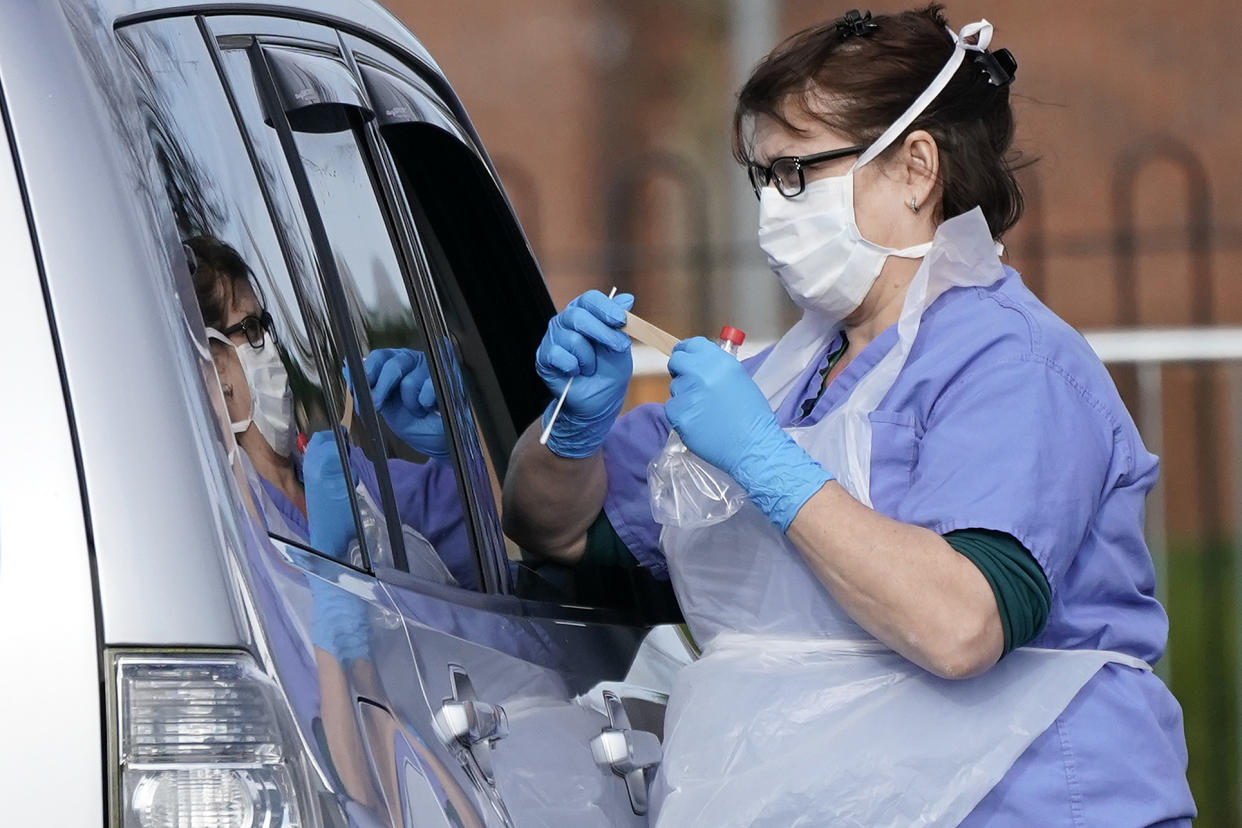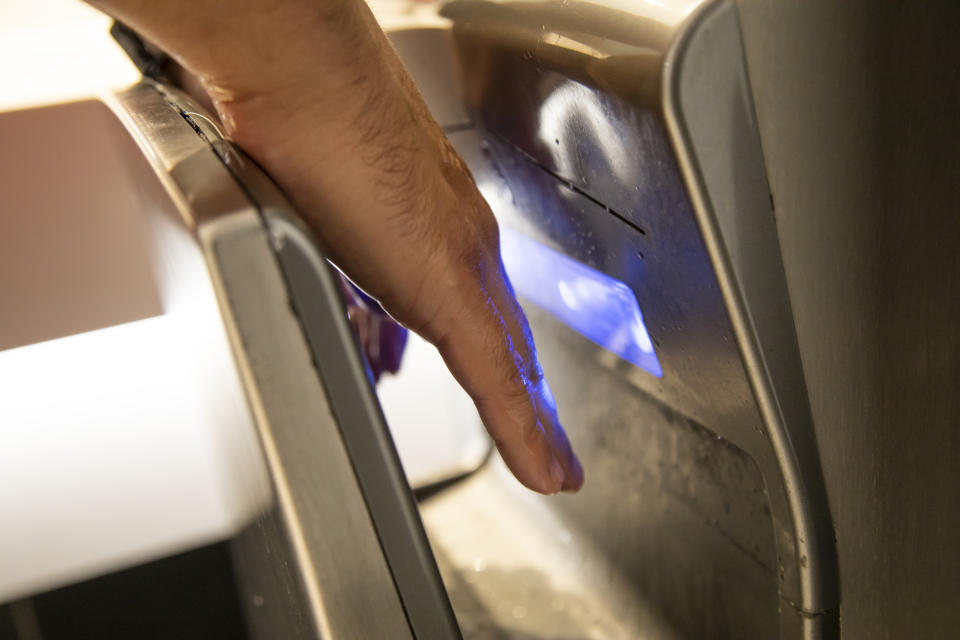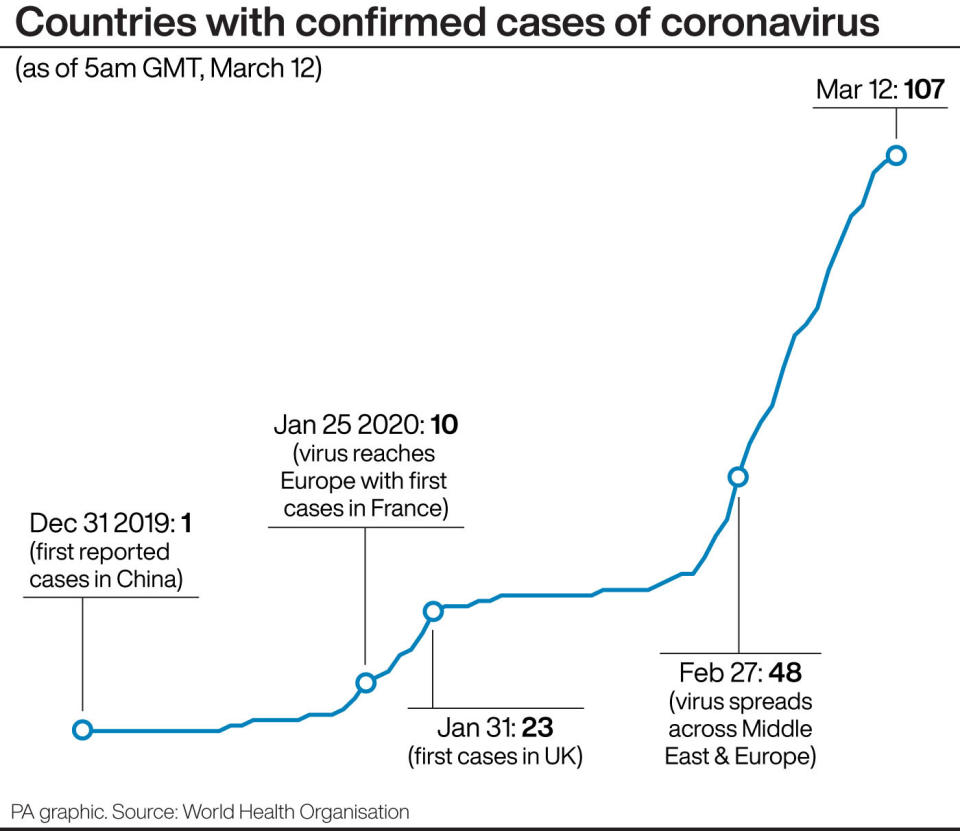Coronavirus: Some of the myths you should be aware of

As concerns grow across the world about the spread of coronavirus – now classed as a pandemic – authorities have found themselves constantly battling myths around the virus.
The World Health Organization (WHO) has published a list of mythbusters on its website in order to counteract some of the claims going viral online.
Here are some of the myths that have gone viral about Covid-19 that experts have said aren’t true:
Taking a hot bath will stop you from catching coronavirus
Taking a hot bath will not prevent you from catching coronavirus, the WHO has said.
Latest coronavirus news, updates and advice
Live: Follow all the latest updates from the UK and around the world
Fact-checker: The number of Covid-19 cases in your local area
Explained: Symptoms, latest advice and how it compares to the flu
On its website, the organisation reminds you that your body temperature remains around 36.5°C to 37°C, regardless of the temperature of your bath or shower.
“Actually, taking a hot bath with extremely hot water can be harmful, as it can burn you,” it says, reminding people that the best way to protect against coronavirus is by washing your hands regularly.
Cold weather and snow can kill coronavirus
The WHO says there is no reason to believe that cold weather can kill the new coronavirus or other diseases.
Similarly to hot baths, it reminds people that the normal human body temperature remains around 36.5C to 37C, regardless of the external temperature or weather.
Hand dryers can kill coronavirus
In response to what is presumably a rumour abound about hand dryers, the WHO says: “No. Hand dryers are not effective in killing the 2019-nCoV.

“To protect yourself against the new coronavirus, you should frequently clean your hands with an alcohol-based hand rub or wash them with soap and water.
“Once your hands are cleaned, you should dry them thoroughly by using paper towels or a warm air dryer.”
Spraying alcohol or chlorine all over your body kills coronavirus
The WHO points out that spraying alcohol or chlorine all over your body will not kill viruses that have already entered your body.
Read more: Schoolboy 'suspended for selling hand sanitiser at 50p a squeeze'
It says: “Spraying such substances can be harmful to clothes or mucous membranes (i.e. eyes, mouth).
“Be aware that both alcohol and chlorine can be useful to disinfect surfaces, but they need to be used under appropriate recommendations.”
Regularly rinsing your nose with saline will prevent you catching coronavirus
Another social media rumour suggests that regularly rinsing your nose with saline could protect you from getting infected with coronavirus.
The WHO says: “There is some limited evidence that regularly rinsing nose with saline can help people recover more quickly from the common cold.
“However, regularly rinsing the nose has not been shown to prevent respiratory infections.”

Eating garlic can help prevent you catching coronavirus
Another myth busted by the WHO is that eating garlic might help stop you from contracting Covid-19.
In answering such a suggestion, its mythbuster says: “Garlic is a healthy food that may have some antimicrobial properties.
“However, there is no evidence from the current outbreak that eating garlic has protected people from the new coronavirus.”
Holding your breath can test for coronavirus
According to AFP Factchecker, Facebook posts claiming that holding your breath for more than 10 seconds is an effective test for the novel coronavirus, and drinking water regularly can prevent the disease, have been shared thousands of times.
The claims aren’t true. The WHO and other experts said there was no evidence to support them.
You’ll know you’ve got coronavirus because you won’t get a runny nose
Facebook posts have suggested that if you’ve got a runny nose you’ve actually got a common cold, while coronavirus manifests itself as pneumonia with a dry cough and no runny nose.
That’s not true either, according to AFP Factchecker.
Read more: Nurse in Italy shares picture of bruised face after gruelling coronavirus shift
Brandon Brown, a professor at the University of California Riverside’s Center for Healthy Communities, told AFP that coronavirus “can cause a runny nose and sputum,” because “‘the symptoms are first similar to a common cold”.
Pneumonia vaccines will protect you against coronavirus
No. Vaccines against pneumonia, such as pneumococcal vaccine and Haemophilus influenza type B (Hib) vaccine, do not provide protection against the new coronavirus.
The virus is so new and different that it needs its own vaccine. Researchers are trying to develop a vaccine against 2019-nCoV, and WHO is supporting their efforts.
Although these vaccines are not effective against 2019-nCoV, vaccination against respiratory illnesses is highly recommended to protect your health.

 Yahoo News
Yahoo News 


